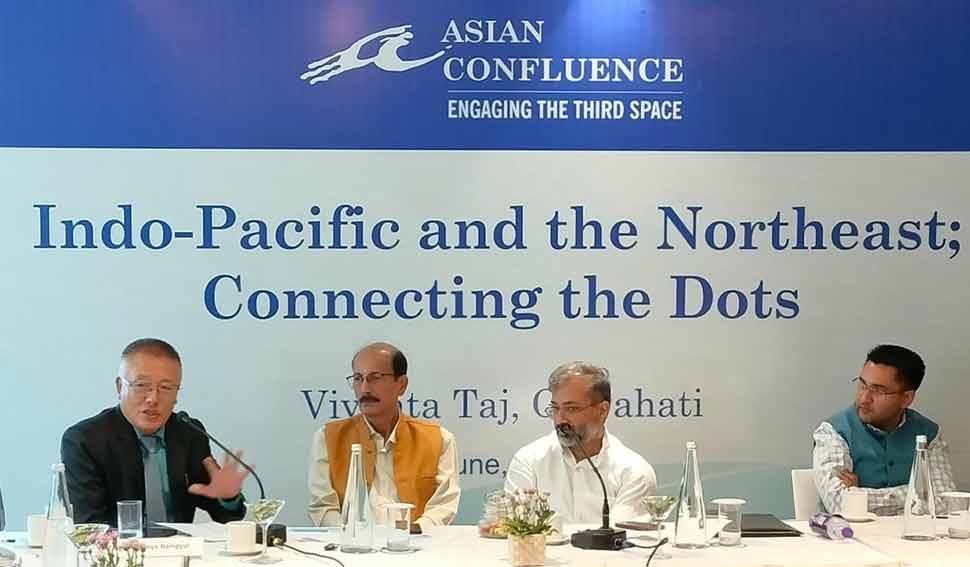Round table conference on ‘Connecting the Dots: Indo-Pacific and Northeast’

A round table conference on the topic “Connecting the Dots: Indo-Pacific and the Northeast” was organized by the Shillong-based think tank, Asian Confluence in Guwahati on Monday.
The roundtable was a platform for the exchange of ideas between policymakers, thought leaders, scholars, experts, civil society representatives, and media professionals, to explore the ways and means to enhance economic, trade, physical, digital, and cultural connections between the Northeast and the broader Indo-Pacific.
Speaking at the conference Maj Gen (retired) Alok Deb highlighted the aspect of the need to integrate connectivity with business to develop a secure northeastern region.
Speaking on the topic, Nagaland University chancellor Samudra Gupta Kashyap emphasized that the development of the region should not be at the cost of ecology.
Taking part in the discussion, Pradeep Taneja, Deputy Associate Dean – International Relations, Faculty of Arts at the University of Melbourne deliberated on the security aspect of the Northeast and said that there is a need to focus on non-traditional security.
In his address, Dr Costas Laoutides, Associate Professor in International Relations at Deakin University, Australia stressed focusing on connectivity, and social cohesion for maintaining regional stability for which continuous dialogue is vital.
Dr Rouhin Deb, Chief Economist, Chief Minister’s Secretariat, Assam, highlighted that the state is planning to develop its own AI policy which would help boost the state economy.
Earlier in his welcome address, Sabyasachi Dutta, Executive Director of Asian Confluence, emphasized strengthening the developmental partnership between India and its eastern neighbours and spoke about why such cooperation is necessary in the context of Northeast India within the wider Indo-Pacific region.
The discussion was part of the ‘scholar-in-residence’ programme organized by Asian Confluence, Shillong.
The first phase of the programme was in Agartala, where scholars visited the Land Port at Akhura and engaged in a stimulating discussion with scholars from Tripura University on “Connectivity of the Bay of Bengal: Perspectives from the Northeast Region.”
The second phase took place in Shillong, where the ICSSR NERC organized a round table on “History and Ecology of the Bay of Bengal: Perspectives from the Northeast Region.” During their time in Shillong, the scholars visited various sites and interacted with the local community. The programme will conclude in Delhi, where the scholars will interact with professionals, academics, and policymakers to gain a comprehensive understanding of the region with the support of the Australian High Commission in India and the Australian Consulate-General in Kolkata.
The scholar-in-residence programme aims to foster academic exchange and collaboration between scholars from Australia and researchers in India, focusing on exploring the Northeast and the wider Bay of Bengal region.

Leave a Reply